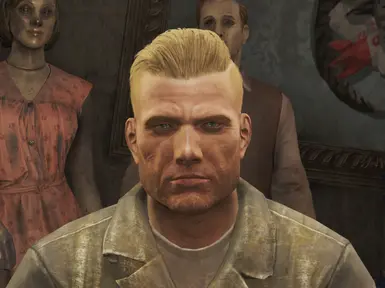

On the other side of this, American society in this alternate timeline version of the 1960’s is not a wholly oppressed, reluctant place. While locations like an atomically-devastated Manhattan and a New Orleans ghetto in the midst of being cleansed of all inhabitants are suitably dystopian and grim, the most chilling thing about Wolfenstein is its insertion of Nazis into traditional Americana. Typical 1960s American values and traditions are combined with white nationalism and supremacy at an institutional, wholly govermentally-enforced level in Wolfenstein 2’s America, and the game has no compunctions about showing homegrown racism and bigotry being the catalyst for collaboration and cooperation by Americans with their new overlords. KKK members joke and practice their German with Nazi soldiers amid July 4th celebrations not of American freedom, but Germany’s victory over the Allies. A mother discusses her pride at her son joining the ranks of the Wermacht with a friend, while another woman tries her best to kiss up to an officer by turning the bigotry dial up to 11. Letters and and newspapers in the environment paint a disturbing picture of normalization as Nazi Germany and America become one.


 0 kommentar(er)
0 kommentar(er)
